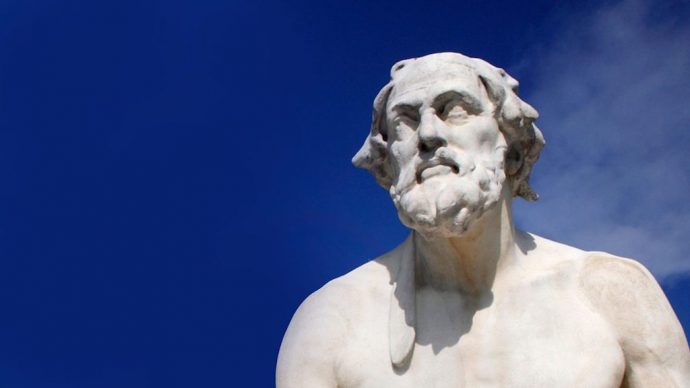After listening to interviews with the author of this book, I’ve been waiting for Victor Davis Hanson to weigh in about Thucydides. Here is Hanson writing at American Greatness:
Currently, the historian Thucydides is the object of debate among those within the Trump Administration and its critics, who, like scholars of the last three millennia, focus on lots of differing Thucydidean personas.
Did Thucydides warn in deterministic fashion about ascendant powers like Athens that disrupt the existing order of Sparta and its Peloponnesian League—and thus prompt preventive attacks from established nations (“the Thucydides trap”)?
Is the historian thus a guide to how to handle a rising China? Or did he remind us how wrong-headed (but nonetheless free and correctable) choices can turn a tense situation into a catastrophe?
Was Thucydides, an admiral and man of action, a voice of the aristocratic elite, or sympathetic toward small landowners who were neither oligarchic nor radically democratic?
Translated into modern terms, was he like-minded with the contemporary elite Washington establishment or a likely supporter of what are now the forgotten Red-State middle classes between the coasts?
Did he despise the reckless democracy that exiled him, or develop a grudging respect for its dynamism and powers of recovery from its own self-inflicted wounds—and become especially complimentary of Periclean leaders who can act forcefully within democratic checks and balances?
Some 2,400 years after Thucydides wrote the Peloponnesian War, scholars still argue over why and how he crafted his history.
Unchanging Human Nature and the Thin Veneer of Civilization
Are there, then, any guiding principles in reading his history that are beyond debate and must be respected in all current and often politicized efforts to channel the great historian?
Read more: American Greatness

